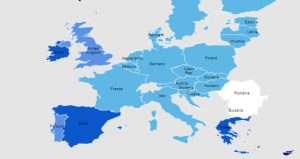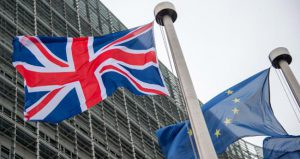EC: Bulgaria violates European market laws for mineral and spring waters

-
 Savina Karneva
Savina Karneva
Share article:
The European Commission (EC) has warned Bulgaria that if it continues failing in meeting two requirements for selling and distributing spring and mineral bottled water. The European Commission has announced that it has already sent an official letter to Bulgaria on non-compliance with EU market requirements for natural mineral and spring bottled water.
In the letter sent by the European Commission, it is stated that Bulgarian legislation still has not prohibited the marketing of natural mineral bottled water and spring water under more than one commercial description of water coming from the same source, which is in violation with the European rules (Directive 2009 / 54). It states that the labels of natural mineral waters must contain information about the place where the spring is operated and the name of the spring. Moreover, Bulgarian laws, contrary to Directive 2009/54 /EC on mineral waters, do not require the name of the source to be indicated on the labels.
Protection of consumers
The European Commission reminds that one of the goals of Directive 2009/54 / EC was adopted in order to eliminate differences between the laws of the Member States governing natural mineral and spring waters, to protect the health of consumers, protect consumers from misleading information and to ensure fair trade.
Who is not following the EU regulations?
The new regulation refers directly to the case of the companies Devin (member of Association of Soft Drinks Manufacturers in Bulgaria) and Baldaran Spring. They bottle spring water from the same spring – ‘Baldaran’, 15 km from Devin, but sell it under two different brands – ‘Devin’ and ‘Baldaran’, respectively. Thus, since the new rules are applied, both companies will have to sell their water under the same trade description, which contains the name ‘Baldaran’. That will lead to the deletion of proven trademarks of leading bottling companies in Bulgaria, which have won market share and consumer confidence with long-term investments. Both companies were informed about the change in 2017, but did not act upon the European regulations.
Is Bulgaria going to be sanctioned?
Bulgaria has two months to take the necessary measures to implement the requirements of the European Commission set out in the letter. Otherwise, the European Commission may decide to refer the matter to the Court of Justice of the European Union, which could impose sanctions on Bulgaria.

















